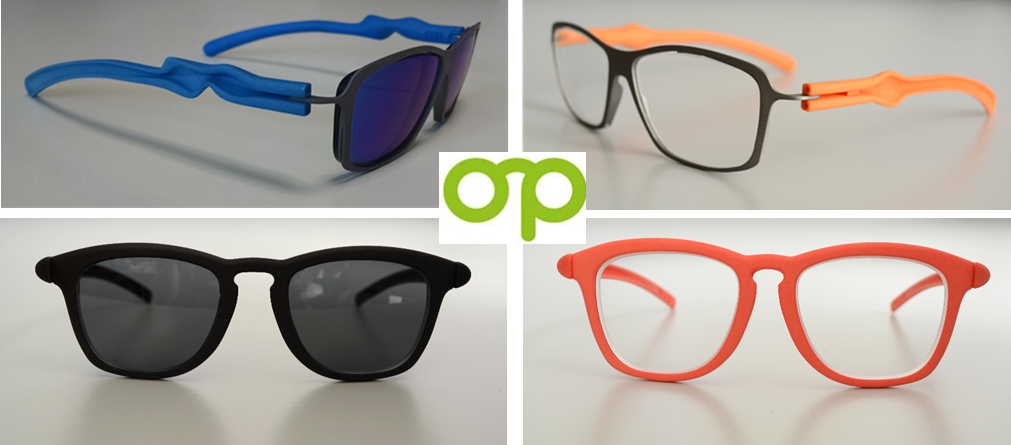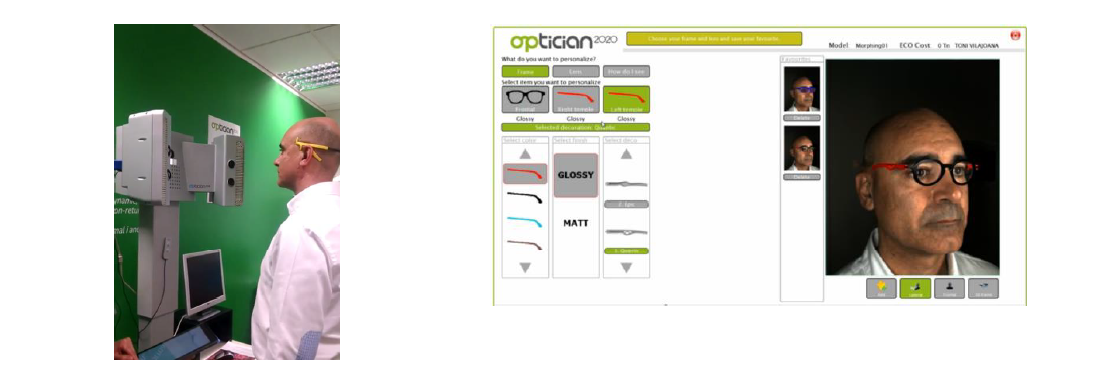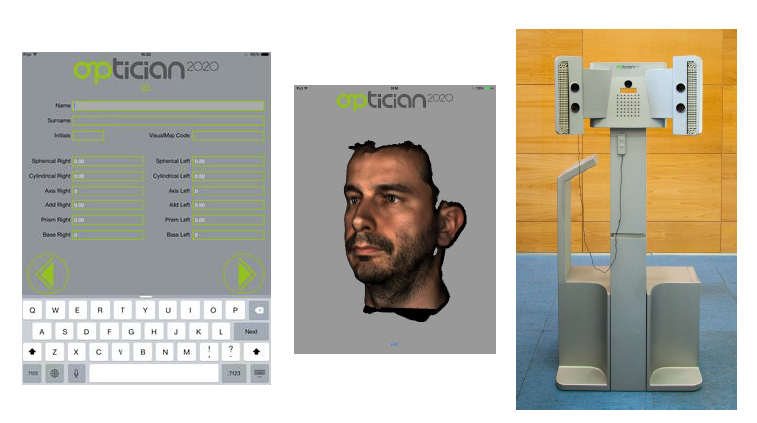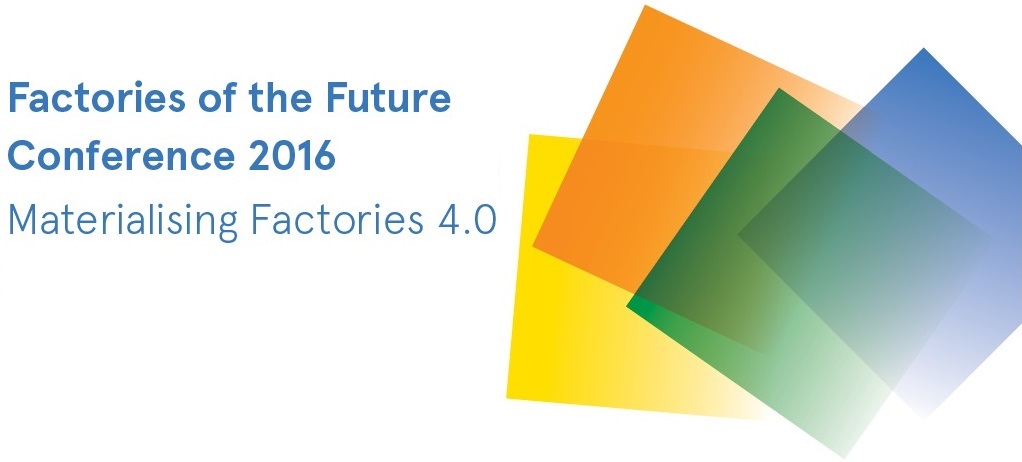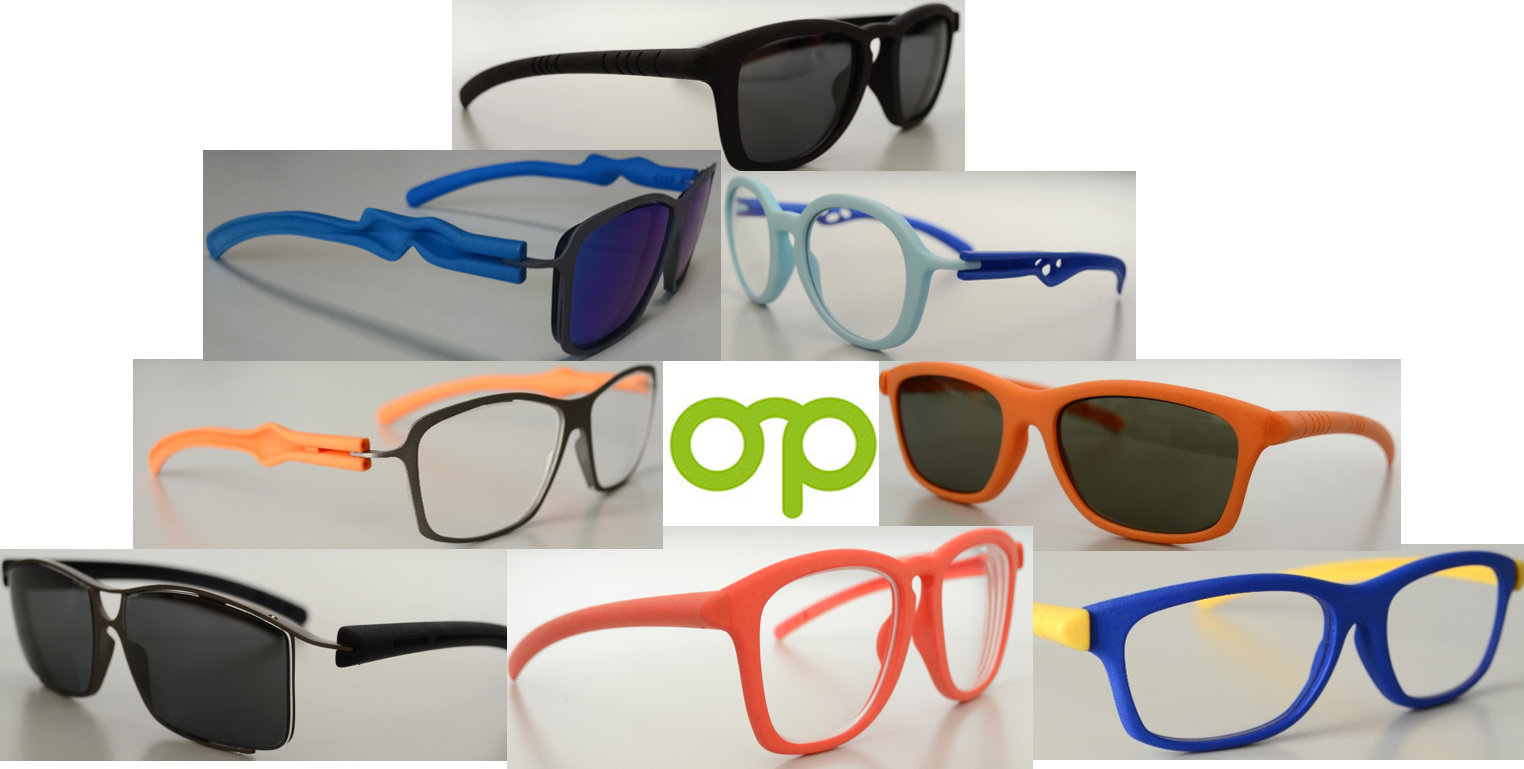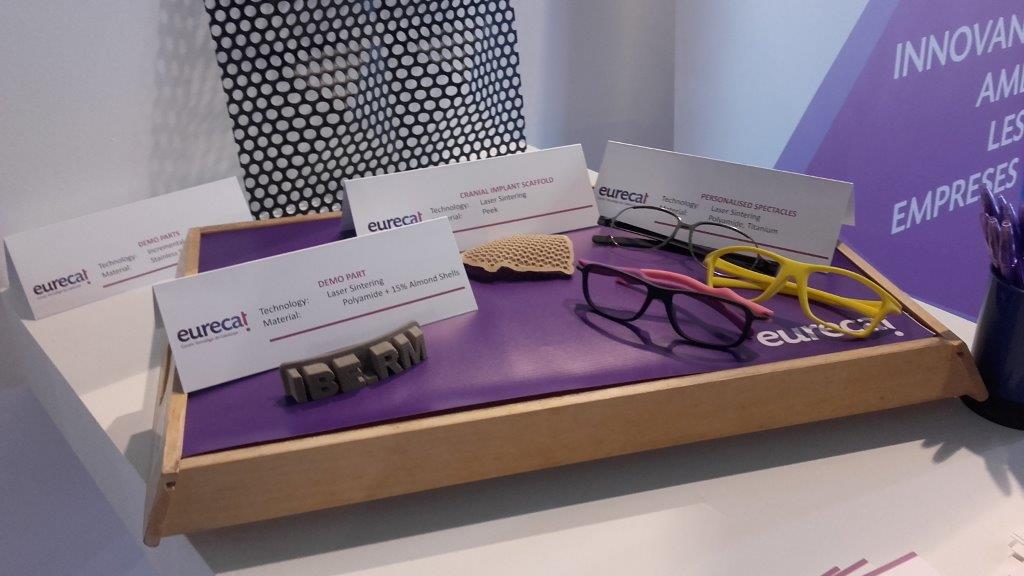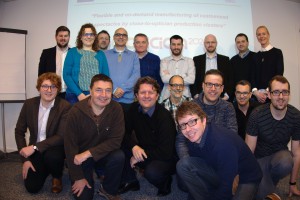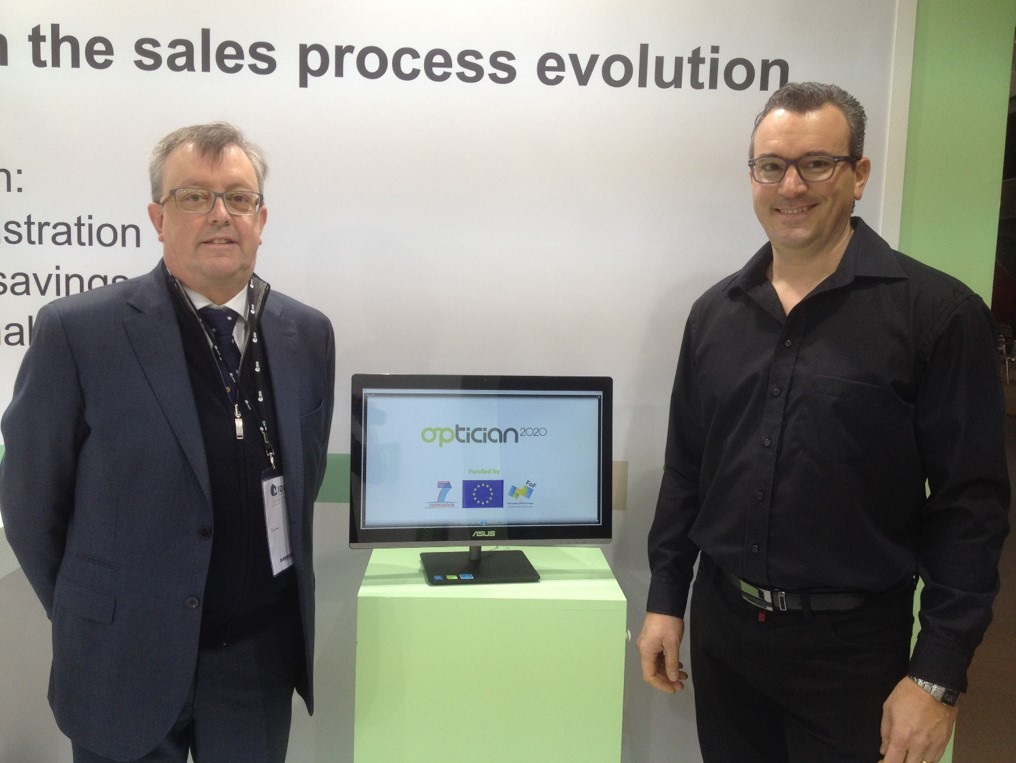The Consortium of European project Optician2020 has successfully finished the activities to demonstrate, assess the benefits and validate the sustainability of a new business model for the production and delivery of personalised spectacles adapted to the morphology of each user based on the use of 3D printing technologies and local manufacturing.
The project, coordinated by Eurecat Technology Centre has brought the Industry 4.0 concept into the optical industry, making real the 2020 ophthalmic industry paradigm, consisting of the manufacture at local mini-factories of completely personalized spectacles, based on refractive prescription, customers’ anatomical data and their aesthetical preferences. The Optician2020 project “combines advanced manufacturing technologies with a network of mini production centres, personalized design, knowledge engineering, sustainable production technology, anthropometry and ergonomics to demonstrate that the manufacture of personalized spectacles can be a local, profitable business while remain sustainable and in line with the latest fashion,” explains project coordinator, Joan Guasch.
This novel paradigm has been demonstrated by means of two mini-factory networks located in Southern Europe and Central Europe. Demonstration started in November 2015 and finished last July. During a period of 7 months, the two mini-factory clusters have generated 455 personalised spectacles that have fitted 240 real users from an optic shop in Portugal and 215 from an optic shop in Switzerland. Those real users have experienced the new purchase experience and the benefits of the personalised spectacles.
Demonstration has validated the sustainability of this novel business model in terms of personalisation flexibility, fast delivery and environmental friendly productions, bringing out important benefits for both the industrial sector and consumers.
By the use of an advanced scanner device, a catalogue of personalisable spectacles allowing a huge amount of combinations, and a user friendly co-design environment, spectacles were designed according to the user’s dimensional facial needs and their aesthetical preferences, providing a breakthrough in the frame and lens fitting accuracy, as reported by several users and opticians, with a success rate in accepting progressive lenses of more than 99%.
The demonstration has also proven that the mini-factories can deliver the personalised spectacles in a competitive time frame (less than 25 days) and foresees delivery times of less than 15 days, reducing the time-to-market of new personalised spectacles to 75% when compared to stock conventional frames.
In addition, the demonstration has shown that the manufacturing of personalized products by means of 3D printing technologies and local manufacturing can reduce the eco-cost up to a significant 50-62% in the best case when compared to traditional processes.
Feedback collected from real users corroborate that Optician 2020 has created a more appealing shopping experience, where the final product perfect fits the consumer face, achieving high levels of satisfaction, quality perception and comfort perception and solving main problems when buying convectional spectacles such as frame adjusting, annoying nose pads or pressure on ears . “Optician 2020 spectacles better suits me” and “Optician 2020 lens provide a better comfort” are common statements heard from customers during demonstration.
All these validation results underpin current industrial paradigm change towards environmental friendly, agile and point-of-need manufacturing and opens the pave the way for the application of the Optician 2020 proposed model for personalised products supply to other consumer products such as jewellery, watches, etc.
Co-financed by the European Commission under the “Factories of the Future, Public Private Partnership” initiative as part of the 7th Framework Programme, Optician2020 has 10 members from 6 European countries. The project balances active participation from large companies such as Indo Optical, Satisloh Photonics and Melotte NV; small and medium sizes companies like Knowledge Integration, Optica Pita, Alcom Optika, Lens World and 3TRPD Limited, together with research and technology centres such as the Valencia Institute of Biomechanics and Eurecat.
To request interviews and for more detailed information, contact Joan Guasch, Project Coordinator joan.guasch@eurecat.org


